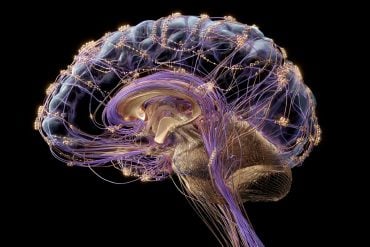As early as 1836, the German physiologist and anatomist Friedrich Tiedemann, in an article in the Philosophical Transactions, expressed his opinion that “there is undoubtedly a connection between the absolute size of the brain and the intellectual powers and functions of the mind”. With the advent of brain imaging methods (e.g., MRI, PET), reliable assessments of in-vivo brain volume and investigations of its association with IQ are now possible.
Now, an international team of researchers, led by University of Vienna researchers Jakob Pietschnig, Michael Zeiler, and Martin Voracek from the Faculty of Psychology, together with Lars Penke (University of Göttingen) and Jelte Wicherts (Tilburg University), published a meta-analysis examining correlations between in-vivo brain volume and IQ in Neuroscience and Biobehavioral Reviews. Based on the data from 148 samples comprising over 8000 participants, they report a robust but weak association between brain size and IQ. This association appeared to be independent of participant sex and age.
“The presently observed association means that brain volume plays only a minor role in explaining IQ test performance in humans. Although a certain association is observable, brain volume appears to be of only little practical relevance. Rather, brain structure and integrity appear to be more important as a biological foundation of IQ, whilst brain size works as one of many compensatory mechanisms of cognitive functions”, explains Jakob Pietschnig from the Institute of Applied Psychology of the University of Vienna.
Brain structure vs. brain size
The importance of brain structure compared to brain volume becomes already evident when comparing different species. When considering absolute brain size, the sperm whale weighs in with the largest central nervous system. When controlling for body mass, the shrew is on the top of the list. Similar results emerge when considering other aspects of species anatomy: Homo sapiens never appears at the top at the list, as would be expected. Rather, differences in brain structure appear to be mainly responsible for between-species differences in cognitive performance.

Within Homo sapiens, there are indications that render a large association between IQ and brain volume similarly questionable. For instance, differences in brain size between men and women are well-established, yielding larger brains of men compared to women. However, there are no differences in global IQ test performance between men and women. Another example are individuals with megalencephaly syndrome (enlarged brain volume) who typically show lower IQ test performance than the average population. “Therefore, structural aspects appear to be more important for cognitive performance within humans as well”, concludes Jakob Pietschnig.
Source: Jakob Pietschnig – University of Vienna
Image Credit: The image is in the public domain
Original Research: Abstract for “Meta-analysis of associations between human brain volume and intelligence differences: How strong are they and what do they mean?” by Jakob Pietschnig, Lars Penke, Jelte M. Wicherts, Michael Zeiler, and Martin Voracek in Neuroscience and Biobehavioral Reviews. Published online October 9 2015 doi:10.1016/j.neubiorev.2015.09.017
Abstract
Meta-analysis of associations between human brain volume and intelligence differences: How strong are they and what do they mean?
Positive associations between human intelligence and brain size have been suspected for more than 150 years. Nowadays, modern non-invasive measures of in vivo brain volume (Magnetic Resonance Imaging) make it possible to reliably assess associations with IQ. By means of a systematic review of published studies and unpublished results obtained by personal communications with researchers, we identified 88 studies examining effect sizes of 148 healthy and clinical mixed-sex samples (> 8,000 individuals). Our results showed significant positive associations of brain volume and IQ (r = .24, R2 = .06) that generalize over age (children vs. adults), IQ domain (full-scale, performance, and verbal IQ), and sex. Application of a number of methods for detection of publication bias indicates that strong and positive correlation coefficients have been reported frequently in the literature whilst small and non-significant associations appear to have been often omitted from reports. We show that the strength of the positive association of brain volume and IQ has been overestimated in the literature, but remains robust even when accounting for different types of dissemination bias, although reported effects have been declining over time. While it is tempting to interpret this association in the context of human cognitive evolution and species differences in brain size and cognitive ability, we show that it is not warranted to interpret brain size as an isomorphic proxy of human intelligence differences.
“Meta-analysis of associations between human brain volume and intelligence differences: How strong are they and what do they mean?” by Jakob Pietschnig, Lars Penke, Jelte M. Wicherts, Michael Zeiler, and Martin Voracek in Neuroscience and Biobehavioral Reviews. Published online October 9 2015 doi:10.1016/j.neubiorev.2015.09.017






